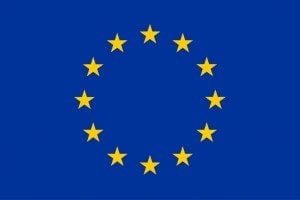
Celebrating Connection and Childhood in Sliven
Sliven, Bulgaria: 31 May-1 June 2024
The children’s faces lit up with joy during the recent festival organized by the Foundation “For Hope” in Sliven’s Nadejda neighborhood, marking a truly unforgettable celebration. The festival brought together local children and international volunteers, forming friendships that will last a lifetime. Young German volunteers bonded deeply with local children creating connections that transcend borders. The event’s highlight came when Kosyo, Petya, Monika, and Georgi sang “Ederlezi” in Romani, bringing everyone together in a moving, united chorus. “I’m so happy,” said one child; others asked, “Will we play again tomorrow?”

Held over two days, on May 31 and June 1, in celebration of International Children’s Day, the event welcomed over 20 volunteers from five countries—France, England, Romania, Germany, and Bulgaria. Teachers, university professors, and students joined the children in activities spanning sports, music, performances, and dance. For many children who rarely have access to such open celebrations, it was a special experience without walls or prejudice.
This festival was more than just fun; it revitalized an abandoned community space, highlighting its potential as a public park for everyone. By turning it into a welcoming area with sports facilities, greenery, and fountains, the event aimed to bridge divides between Bulgarian and Roma communities, fostering inclusion and interaction.

In addition to joy, the festival aimed to empower children, teaching them boundaries, self-awareness, and trust while reinforcing the role of supportive adults. Partners like the Center for Community Support and local schools helped reinforce connections between families and community services, providing resources and preventive measures for vulnerable families.
Finally, the festival served as a reminder to the public about the power of unity in a segregated society. With many volunteers from outside the neighborhood involved, the event challenged stereotypes, building a more inclusive and supportive community for everyone.
 This content is a guest post from one of our partner organizations about their work as part of our ‘Minorities, Accountability, Rights, Independence and Organisational Development’ programme. This article reflects the opinion of its author only and does not engage MRG’s responsibility. Learn more >
This content is a guest post from one of our partner organizations about their work as part of our ‘Minorities, Accountability, Rights, Independence and Organisational Development’ programme. This article reflects the opinion of its author only and does not engage MRG’s responsibility. Learn more >
 MARIO is funded by the Citizens, Equality, Rights and Values Programme (2021-27) of the European Union (ref: 101091387).
MARIO is funded by the Citizens, Equality, Rights and Values Programme (2021-27) of the European Union (ref: 101091387).
